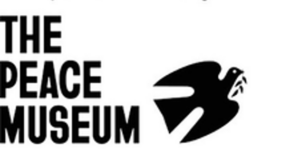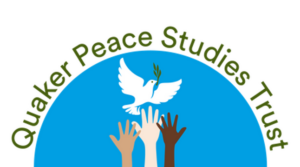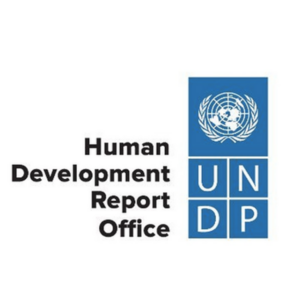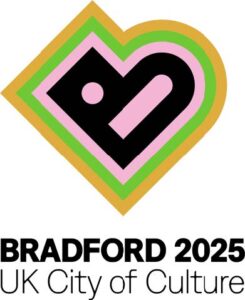…e user versus full HDCA member There are 3 levels of access to the HDCA website: Browse the website as a visitor – not able to download publications or access member information Become a subscribed user to the site – free, with limited access to publications Become a full member of the HDCA – pay a nominal membership fee and have full access to publications and member listings, as well as other member benefits (such as a subscription to the Journa…
Resultados de la búsqueda para: ❤️ BESTE DATING SITE️: www.Dating4Me.site ❤️ Dating Etiket Tweede Datum 2016 Filippyne
-
-
Why join the HDCA?
-
Regan, Matthew. 2013. "The Curious Case of Bali’s Subak System World Heritage Site: A Meditation on Heritage, Agency, & Development in the Light of Complexity" Paper presented at the 10th annual conference of the HDCA, Managua, September 9-12.
-
Register as a site user
Use the below form to become a registered user to the site. This is free and comes with limited access to publications. The HDCA will not make your data available to third parties, and will send you at most 2 e-mails/year with announcements and news that we believe to be of possible interest to you. You can also become a full member of the HDCA – pay a nominal membership fee and have full access to publications and member listings. Create Profile…
-
Workshop on ethics and human rights (Managua, Nicaragua)
…after the main HDCA conference. This small, 1-day workshop, with half-day site visit to follow later in the week, will bring together a handful of local and international development practitioners, or individuals whose work directly impacts development, to lead a series of discussions on the specific human rights and ethical issues on which they work, and the significance or special challenges of this work in the Central American context. These d…
-
2023 HDCA Conference – Sofia, Bulgaria
The conference will take place from 11-13 September, 2023
Hosted by the Institute of Philosophy and Sociology – Bulgarian Academy of Sciences (IPS-BAS), Sofia University “St. Kliment Ohridski”, Open Society Institute – Sofia (OSIS), Trust for Social Achievement (TSA), and Sustainable Cooperation (SCOOP)‘Vulnerability, human development and cooperative re-building in turbulent times’
We are living in turbulent times, times characterized by dynamic, deepening inequalities both between and within societies, as well as increased levels of insecurity and vulnerability. The Covid 19 pandemic, climate change, ecological disasters, famine war in Ukraine and many other conflicts around the world, have deepened these trends. The consequences are evident in human and non-human life posing multilayered obstacles to human development. Between 2020 and 2021, the human development index contracted for all countries.
Vulnerability is a feature of humanity. Martha Nussbaum notes the need for societies to acknowledge their citizens are needy and vulnerable. If vulnerability is an enduring aspect of the human condition, it needs to be addressed by individuals, collectives and institutions. The recent Covid-19 crisis demonstrated that human vulnerability is universal. But it is also shaped and experienced differently depending on economic, political and social environments.
There are no ready, easily applied and transferable answers about how individuals and societies can cope with vulnerability amidst many emerging challenges across the world. However, there are some lessons to be learned. All crises remind us how much human lives are interrelated. In order to flourish, our societies need more cooperation at all levels – local, national and global. We need a balance between striving for individual goods and the promotion of public goods. Innovations can help, but an inclusive usage of digital technologies is necessary.
Recent manifestations of human vulnerability raise questions about how the capability approach and the human development paradigm can help, in the contemporary context, in thinking through some of the questions of changing capability sets across social divisions of race, class, gender, age, disability and nationality. Applying the capability approach can encourage studying who benefits and who loses from recent societal developments. How is development as freedom as outlined by Amartya Sen, possible under these circumstances? Are there capabilities that can promote prosperity, hope and re-imagined futures in our contemporary world?

-
HDCA Launches New Website
…laken, HDCA Officer-at-Large, who spearheaded the project! The revamped website features a more modern design, a new logo, and easier navigation. We hope that the site will encourage more active contributions on the part of members, including news items, events and publications. The site now offers more information and materials on the capabilities approach, and we will continue to expand these resources in the months to come. There is still work…
-
2025 HDCA Conference – Bradford, UK
September 1-5, 2025
Hosted by the University of Bradford

“Culture, Peace and Capabilities”
At the heart of the capability approach (CA) is the idea of human flourishing. However, human flourishing is challenging, and in some cases, not possible, in a world of conflict and insecurity – whether between nations, or between groups within a country or between individuals at the micro-level of a society.
The foundational ideas of the CA (of both Sen and Nussbaum schools) envision a society where constitutional guarantees and deliberative public reasoning provide for the protection of minorities and disadvantaged individuals, and at a theoretical level these should be the starting points for building institutions to mitigate against conflict and to resolve conflicts where these appear.
As we welcome the community of the ‘Human Development and the Capability Association’ to the University of Bradford where the UK’s first Peace Studies Department was founded in 1973, the idea of connecting the CA with peace is an exciting and significant theme to explore. Bradford is also celebrating being the UK ’City of Culture 2025’. The year-long celebration recognizes the contributions made by generations of waves of immigrants over the last two centuries.
Frequently Asked Questions and Answers
With support from:





-
Topper, Amelia Marcetti (2014). 'Exploring Conceptualizations and Measures of Community College Student Success' Paper presented at the annual conference of the HDCA, 2-5 September 2014, Athens, Greece.
-
Cookie Policy
…for things like shopping carts, and provide anonymised tracking data to third party applications like Google Analytics. As a rule, cookies will make your browsing experience better. However, you may prefer to disable cookies on this site and on others. The most effective way to do this is to disable cookies in your browser. We suggest consulting the Help section of your browser or taking a look at the About Cookies website which offers guidance fo…

